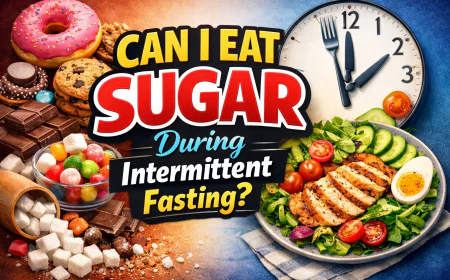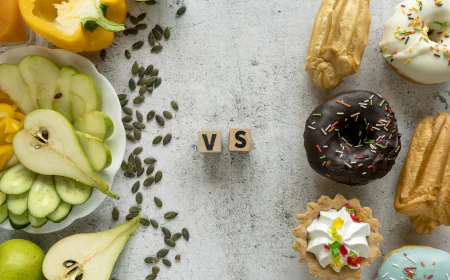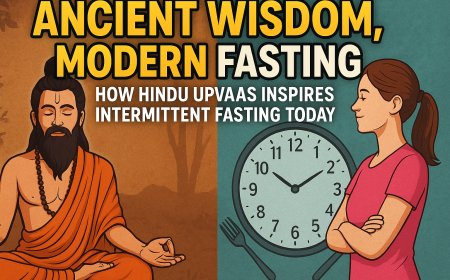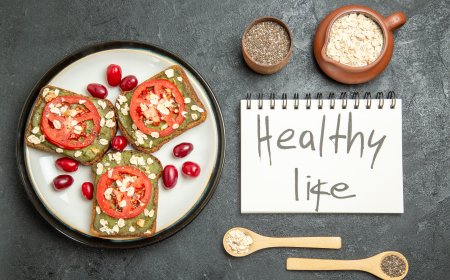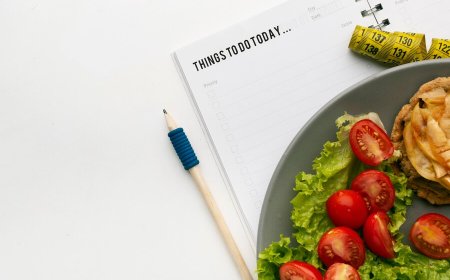Intermittent Fasting for Beginners – Everything You Need to Know
A beginner’s guide to intermittent fasting: learn how IF works, top benefits, easy schedules like 16:8 and 5:2, and the safest way to start your weight-loss journey.
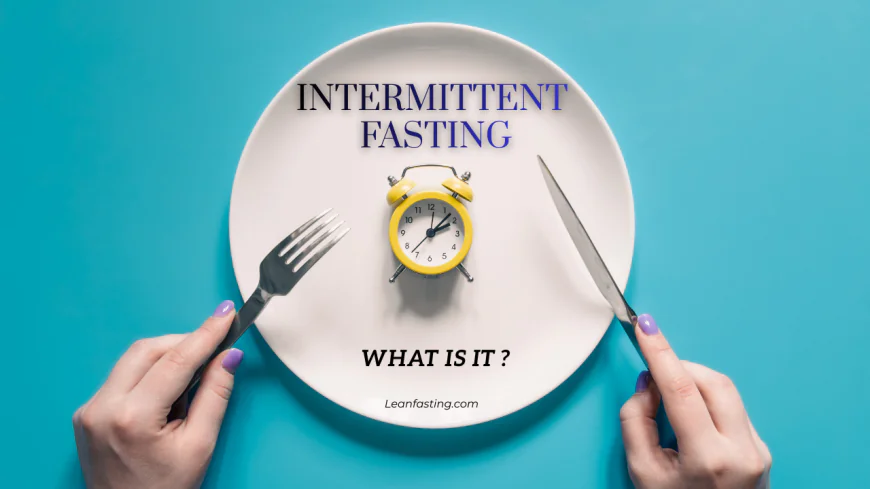
Intermittent Fasting (IF) has quickly become one of the most popular health and wellness trends across the United States. From weight management and improved energy to better metabolic health, IF offers a wide range of benefits without forcing you to follow a strict “diet plan.” If you're new to fasting or simply curious how it works, this beginner-friendly guide covers everything you need to know.
Intermittent fasting isn’t about restricting what you eat—it’s about choosing when you eat. This flexibility makes it easier for beginners to follow and maintain compared to traditional calorie-restrictive diets.
What Is Intermittent Fasting?
Intermittent fasting is an eating pattern where you cycle between periods of eating and fasting. Instead of focusing on specific foods, IF focuses on timing. During your fasting window, you avoid consuming calories, allowing your body to rest, repair, and switch to burning stored fat for energy.
This approach is simple, sustainable, and suitable for students, parents, professionals, fitness lovers, and anyone seeking a flexible diet style.
How Intermittent Fasting Works (Science Explained)
To understand IF, it’s important to know how the body stores and uses energy. When you eat—especially carbs—insulin rises and stores glucose as fat. During fasting, the opposite happens:
- Insulin levels drop
- Stored fat is burned for energy
- Cells enter repair mode (autophagy)
- Inflammation decreases
- Metabolism becomes more efficient
This process, called metabolic switching, supports weight loss and long-term health. Autophagy also helps cellular repair, contributing to anti-aging benefits.
Popular Intermittent Fasting Methods for Beginners
1. 12:12 Method (Beginner-Friendly)
- 12 hours fasting
- 12 hours eating window
2. 16:8 Method (Most Popular)
- 16 hours fasting
- 8 hours eating window
3. 14:10 Method
- 14 hours fasting
- 10 hours eating window
4. 5:2 Diet
- 5 days normal eating
- 2 days reduced calories (500–600)
5. OMAD (Advanced)
- 23 hours fasting
- 1-hour eating window
Benefits of Intermittent Fasting
1. Natural Weight Loss
Lower insulin levels and better fat-burning support natural weight loss without strict dieting.
2. Better Blood Sugar Control
IF improves insulin sensitivity, reduces cravings, and can help people with prediabetes.
3. Reduced Inflammation
Fasting lowers inflammation linked to several chronic issues.
4. Improved Heart Health
IF may lower cholesterol, blood pressure, triglycerides, and improve circulation.
5. Increased Mental Clarity
Fasting boosts BDNF, supporting memory, focus, and mood.
Who Should Avoid Intermittent Fasting?
- Pregnant or breastfeeding women
- People with eating disorders
- Underweight individuals
- Diabetics on medication
- People with chronic medical issues
How to Start Intermittent Fasting (Beginner Tips)
1. Start Slowly
Begin with 12:12, then shift to 14:10, and gradually move to 16:8.
2. Stay Hydrated
You can drink water, black coffee, herbal tea, and unsweetened green tea during fasting.
3. Eat Nutrient-Dense Foods
Include lean protein, whole grains, vegetables, greens, fruits, and healthy fats.
4. Avoid Overeating After Fasting
Break your fast with light foods—fruits, nuts, smoothies, or lean protein.
5. Sleep Well
7–8 hours of sleep reduces cravings and supports fasting.
FAQs
Yes, black coffee without milk or sugar is allowed.
Most people see results in 2–4 weeks.
Yes, but shorter windows like 14:10 are ideal.
Light workouts are fine; strength training is best during the eating window.
Final Thoughts
Intermittent fasting is a simple, powerful lifestyle approach that boosts metabolism, reduces inflammation, and supports weight loss. Start slow, stay consistent, and listen to your body for long-term benefits.
Disclaimer: This article is for informational purposes only and does not constitute medical advice. Before starting any diet, fasting routine, or weight loss program, please consult a qualified healthcare professional, especially if you have any existing medical conditions.
